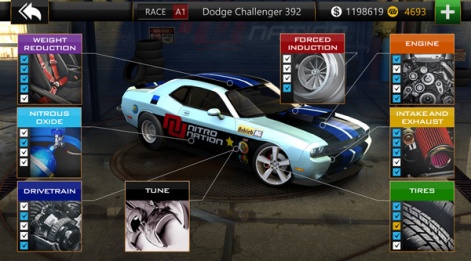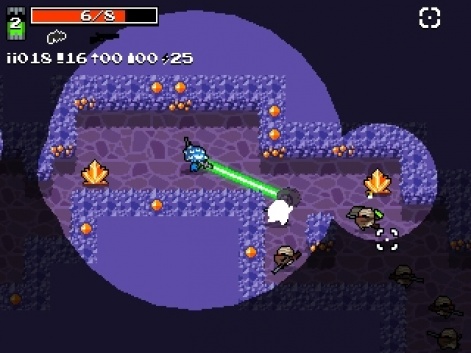2014 should be remembered as the year that the game release was killed. It's an outdated relic of the time before the internet, before limitless storage, and before games could be a service.
We live in a world where games no longer are a permanent thing – and it's time that developers, and everyone in the culture, embraces it.
When I say the game release has died, I mean the idea of a game being made, tested, and then released in a permanent, unchanging form to the public is going away. With the rise of patches, DLC, IAP, and online connectivity in mainstream gaming, the ideals for how games are made and consumed has dramatically shifted in the last 10 years.
I think many developers strive toward the ideal of game creation and consumption as it was 20-25 years ago, and the press does so as well.
For developers, it's certainly simplest to just release a game and charge once for it and, for the press, games that are finite products that have a single price are easiest to talk about. But this ideal is not universal and not what players necessarily want.
The beta age
The ideal of games being unchanging is only new to those who grew up in the console world. PC games have seen how games can be flexible for years, with expansions, mods, beta testing, and online-first games. Really, gaming devices have just caught up to what the PC has done: installing, patches, and the like.
2014 should be remembered as the year that the game release was killed.
The days when you could buy a game console or handheld, and just plug in a game and enjoy it passed years ago with firmware updates and day one patches.
Heck, the idea of polished releases being the norm fell by the wayside too – look at Assassin's Creed Unity shipping with many glitches. More games have day one patches than ever, and multiplayer servers often have issues early on, and so on. Dealing with technical problems is part of the experience for the modern gamer. They know to expect an imperfect experience.

But they also expect games to change. Minecraft has been a success in part because the game is never finished. There's always something new to it. We see this with MOBAs as well, where new characters and map changes happen. They're an integral part of the experience.
And on mobile, Candy Crush gets new levels. Clash of Clans and other games have events along with their server-driven gameplay. The experiences are dynamic and don't necessarily have a finite end point.
Developers that have catered to the desires of their players to create something that is dynamic by design are succeeding in these modern gaming times.
The new mindset is that players expect their games to change and adapt.
Also, games can now be bought in unfinished states. Minecraft was a hit in alpha form. Early access games on PC have success stories, like DayZ, Nuclear Throne, and Starbound. I honestly believe 2007's Call of Duty 4 multiplayer beta on console helped make that series the pre-eminent FPS of its generation by getting new players into it and excited for it, not just fans of the series previously.
When a game 'releases', what does that mean? There's no good answer other than that it should be a polished experience; emphasis on should.
What's in a name?
I think too much of the gaming establishment is stuck in the ideal of games being like movies, as inflexible experiences that are marketed before release, then put out and pray that they do well. Conversely, I believe games should be more like the theatre or TV. Plays, for instance, often have preview productions with the caveat that they are there for the production to get ready for the mass audience.
Maybe things will go wrong - that's a baked-in part of the experience - and with episodic TV, constant marketing is often necessary to attract and retain the audience. Games should be more like these forms of media, as there are mechanical changes that can be made and changed to make them better and more appealing not just today, but tomorrow, and for new audiences.
Game developers need to approach making games in this way, that what a game is today is not what it is like tomorrow.

Is there resistance to betas and early access? Sure. But how much of that is labelling influencing expectations that something is unfinished and plainly not ready versus how the player would actually react to it? What's the difference between a game changing things three months before 'release' in early access versus making a change three months later? Is it just because that's what the developer says that makes it okay that it changes later?
Compare this with soft launches, when a game is still subject to changes, but not necessarily is publicly saying "this is unfinished?" The difference may just be expectation due to labelling.
Games can be temporary experiences. They can be released in a state that is only as ready for public consumption as necessary, and parts added later on, and they can be sold this way. Maybe games can be released in a mechanically polished state but with more content added early on. A launch date shouldn't be the only chance for a game to succeed, particularly if more content could be used to draw more attention and customers down the road.
The advantage of early access
As such, developers should not be afraid to release a game early. I think early access on mobile is an underused proposition. iOS rules and the way App Store featuring works means that the one-time release is what most developers have to shoot for, but Android is much more conducive to early access; intentionally limit an audience, and find people who will play an early version of games.
Get a game to a point where it can be played by the public, and take advantage of how early access can limit an audience, before the game goes worldwide. Or soft launch in certain territories even as a paid game. Use the public as testers. They'll get the 'finished' game as well. Don't be afraid to break things along the way.
Android is much more conducive to early access.
Also, don't let the game's release be the end of the game's content. It can just be a milestone. We live in a time when the most profitable games, especially on mobile, weren't released in 2014, but 2013 or 2012. Sure, people are always looking for something new, but new can be in the context of the games they already enjoy, not "brand new game entirely." A game should last as long as there is demand for it.
While I like the idea of the unchanging game, I think that it should be a stylistic choice, rather than the ideal or the default as I think many want to make. It's an old mindset. The new mindset is that players expect their games to change and adapt.
Yes, there is a degree of entitlement when it comes to Monument Valley players not wanting to pay for additional levels, but when so many games make new content for free, are they really to blame? The market has spoken and those who can cater to it will succeed.
This isn't to say that the new ways are perfect – I do think free-to-play could still improve, and early access can be abused. However, the way we buy and consume games has changed so dramatically that developers can't be trying to make and sell games by the 1994 ideal when it's 2014.






















